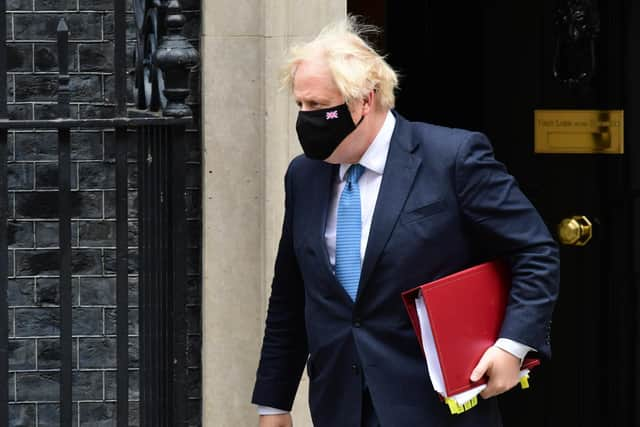Boris Johnson promises his levelling up agenda won't make rich parts of the country poorer by 'decapitating the tall poppies'
In a speech in the West Midlands today, the PM will say he doesn’t “want to decapitate the tall poppies” in fulfilling his promises to parts of Yorkshire and the North where the Tories made gains in the 2019 General Election.
He is expected to say that “we will have made progress in levelling up when we have begun to raise living standards spread opportunity, improved our public services and restored people’s sense of pride in their community”, particularly in places that have felt left behind for decades.


Advertisement
Hide AdAdvertisement
Hide AdThe speech comes ahead of a Levelling Up White Paper that will be published in the Autumn to deliver on what the PM says is “the central purpose of his premiership”.
And earlier this week northern Tory MPs urged him to “show the North this summer” with initiatives to bring investment and jobs to the region.
Mr Johnson will make clear that this agenda will also help to relieve pressure in the parts of the UK which are ‘over-heating’
He will say: “It is vital to understand the difference between this project and levelling down.
Advertisement
Hide AdAdvertisement
Hide Ad"We don’t want to decapitate the tall poppies. We don’t think you can make the poor parts of the country richer by making the rich parts poorer…”
The Prime Minister will argue that previous governments focused investment too much in “areas where house prices are already sky high and where transport is already congested…”
And he will say that “by turbo charging those areas - especially in London and the South East – you drive prices even higher and you force more and more people to move to the same expensive areas.
"And the result is that their commutes are longer, their trains are more crowded, they have less time with their kids. They worry at the same time that the younger generation won’t be able to get a home and that their leafy suburb or village will be engulfed by new housing development but without the infrastructure to go with it.”
Advertisement
Hide AdAdvertisement
Hide AdThe PM will also say that “levelling up is not a jam-spreading operation. It’s not robbing Peter to pay Paul. It’s not zero sum, it’s win win.”
Henri Murison, director of the Northern Powerhouse Partnership, and John Dickie, Chief Executive of London First, said in a statement: "The Prime Minister is right that the way to achieve Levelling Up is not to do down some regions with the aim of helping others, as in reality inequality is a complex picture right across the UK.
“Our members, including the leading business people and industrialists of London and the North, are united by the common cause of a strong and dynamic economy. That means ensuring our cities can successfully re-open, continue to pursue net zero and make strategic investments in key transport improvements.
“The direction the Government sets on Levelling Up should recognise the importance of a greater ability for parts of the country to raise and spend their own taxes to give places both freedoms and responsibilities.”
Advertisement
Hide AdAdvertisement
Hide AdMeanwhile, North Yorkshire’s Rural Commission officially launched a series of radical actions yesterday to transform England’s largest county into one that has more young people, has a thriving rural economy and is fully connected.
Comment Guidelines
National World encourages reader discussion on our stories. User feedback, insights and back-and-forth exchanges add a rich layer of context to reporting. Please review our Community Guidelines before commenting.
